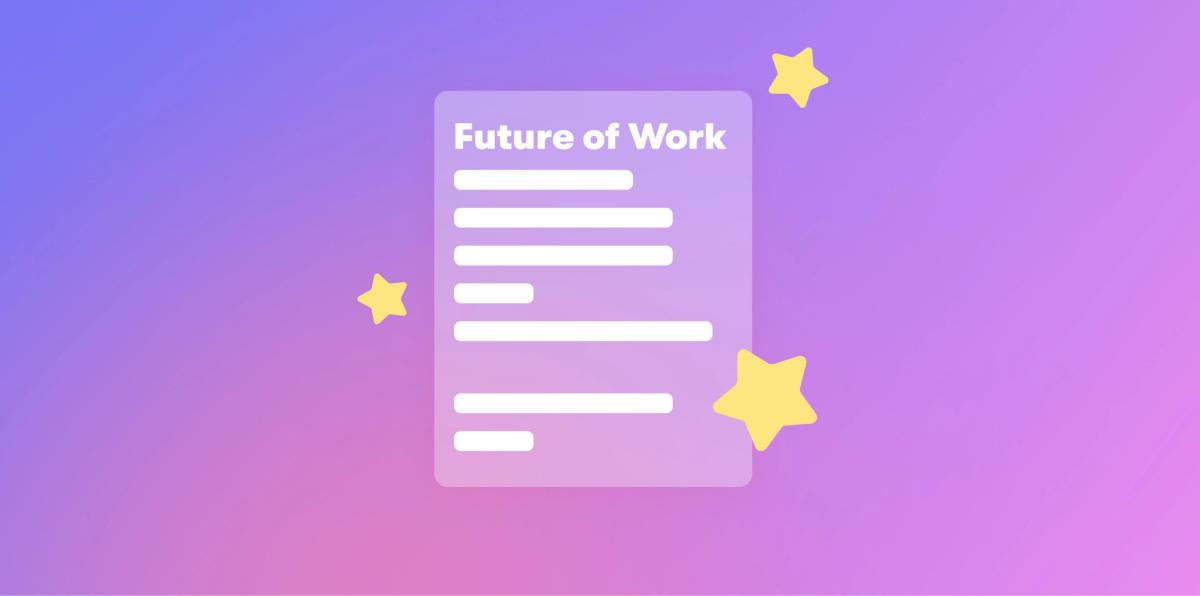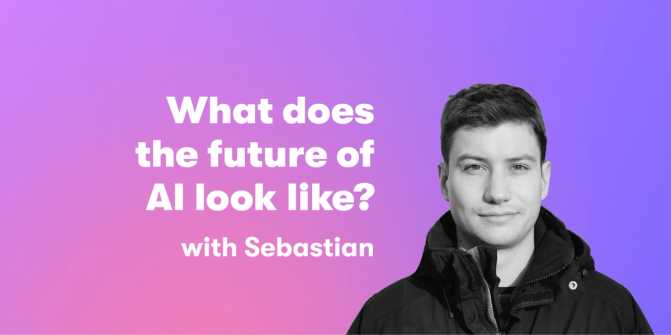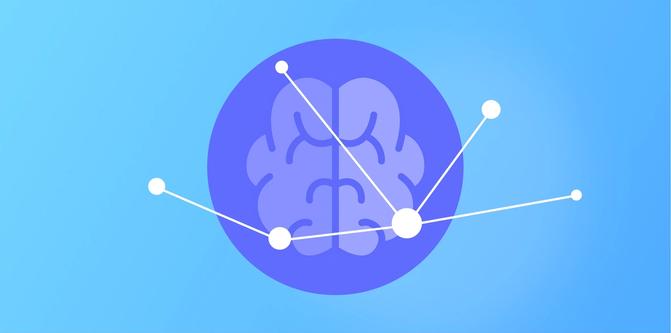10 Key Insights from Microsoft’s New Future of Work Report

The question is, “How do we want AI to affect work?”
Since 2021, Microsoft has published yearly reports, synthesizing in-house and academic research to project the future of work and understand modern professional life. In recent years, these reports have focused on remote and hybrid work. This year's report takes a significant turn, pivoting towards the quantification of the influence of AI-driven productivity.
As Microsoft unravels the threads of AI's promises and potential challenges, it's evident that the future of work extends beyond the physical workspace. The latest insights shed light on the imminent transformation orchestrated by AI, indicating that our professional lives are on the brink of a paradigm shift, as outlined by Microsoft’s 2023 New Future of Work Report.
Whatever the future of AI holds, let’s take a look at ten of Microsoft’s most influential forecasts.
1. AI and LLMs Supercharge Productivity (with a Caveat)
Microsoft's report reveals a remarkable boost in productivity when using AI and Large Language Models (LLMs), with workers being 37% faster in information work and experiencing a 40% increase in quality for consulting tasks. However, a caveat emerges, as the speed gain comes at the expense of correctness, decreasing by up to 19%. But, user experience interventions, , like confidence scores, might become a risk-mitigating necessity.
2. LLMs Empower Junior-Level Employees
The report emphasizes that LLMs significantly benefit junior-level and less experienced employees, filling skill gaps and promoting a 43% increase in performance for the bottom half in terms of performance. Critical thinking remains a valuable skill, acting as a catalyst for effective AI utilization, but more junior roles will benefit most.
3. Revolutionizing Planning and Workflows
AI's role in task assignment and personalized task completion revolutionizes planning and workflows, contributing to the evolution of digital knowledge. Knowledge fragmentation is expected to improve with AI's influence.
AI tools like Collato can revolutionize workplaces by making your team’s information immediately accessible. AI can help mitigate information silos, lost information, and other detriments to collaboration. AI tools can be integrated into your workday by making you and your team more productive, as much as 37% faster and with 40% higher quality.
4. Analyzing and Integrating Skills Gain Prominence
While ‘[re]searching’ and ‘creating’ lose significance, the report stresses the growing importance of analyzing and integrating skills in the AI-dominated future. Prompt engineering emerges as a vital skill, facilitating effective interaction with AI models. It is now apparent that prompting LLMs effectively is challenging, but we’re getting better at it as we ride a natural learning curve.
5. Balancing Reliance on AI is Crucial
The report warns against over-reliance on AI tools like ChatGPT and emphasizes shared responsibility in ensuring correctness and relevance. "Co-auditing," where users verify responses, becomes essential to maintain accuracy. Clear communication of expectations and goals is stressed, underscoring the importance of instructing AI models explicitly.
6. English Dominates the AI Landscape
English stands out as the dominant language in AI models due to its prevalence in training data and on the web. Non-Latin scripts face a notable disadvantage, highlighting potential biases in language representation within AI models.
7. Distinguishing Fast AI and Slow AI
Different AI tools cater to distinct needs, with some designed for immediate responses and others for more comprehensive, accurate answers. The report introduces the concept of "Fast AI" and "Slow AI," acknowledging that for some use cases, workers are willing to wait considerably longer if it means the output is better. Workers are willing to wait for larger, more accurate responses.
8. AI's Revolutionary Impact on Education
The report underscores the transformative potential of AI and LLMs in education, citing the promise of LLM tutors. However, it warns against potential misuse and over-use by students and acknowledges the presence of biases in AI. Despite challenges, AI offers the prospect of personalized and cost-effective education, which could mitigate some learning disparities in the long run. AI personalized tutors are way cheaper and more viable than individualized tutors for every student.
9. AI Reshapes Social Studies and Humanities
Beyond STEM, AI's impact extends to social studies and humanities, enabling real-time research and data analysis through the creation and simulation of new data. AI will continue to play a significant role in academic research and will expand further from just math and science. In the near future, AI will be conducting experiments and tests on its own.
10. AI is Socio-Technical: Shaping the Future of Work
The report concludes with a reflection on the socio-technical nature of AI, acknowledging the mixed sentiments of excitement, concern, and uncertainty. It emphasizes the need for continuous monitoring to address moral and bias concerns and highlights existing disparities in AI adoption. As 80% of the workforce anticipates at least a 10% impact on tasks, the question shifts from "How does AI affect work" to "How do we want AI to affect work?" The future of work, as envisioned by Microsoft, is a nuanced interplay of human ingenuity and technological advancement.
TL;DR
Microsoft forecasts the transformative power of AI and Large Language Models– from supercharging productivity to revolutionizing planning and workflows. While AI's potential in education and its socio-technical impact are promising, the need for a cautious and balanced approach remains paramount.
Microsoft's insightful reports illuminate the imminent transformation orchestrated by AI, envisioning a future where the interplay of human ingenuity and technological advancement shapes a dynamic professional landscape. As we grapple with the evolving role of AI, the question shifts from "How does AI affect work?" to "How do we want AI to affect work?" – a query that underscores the pivotal role of intentionality in steering the future of work.






